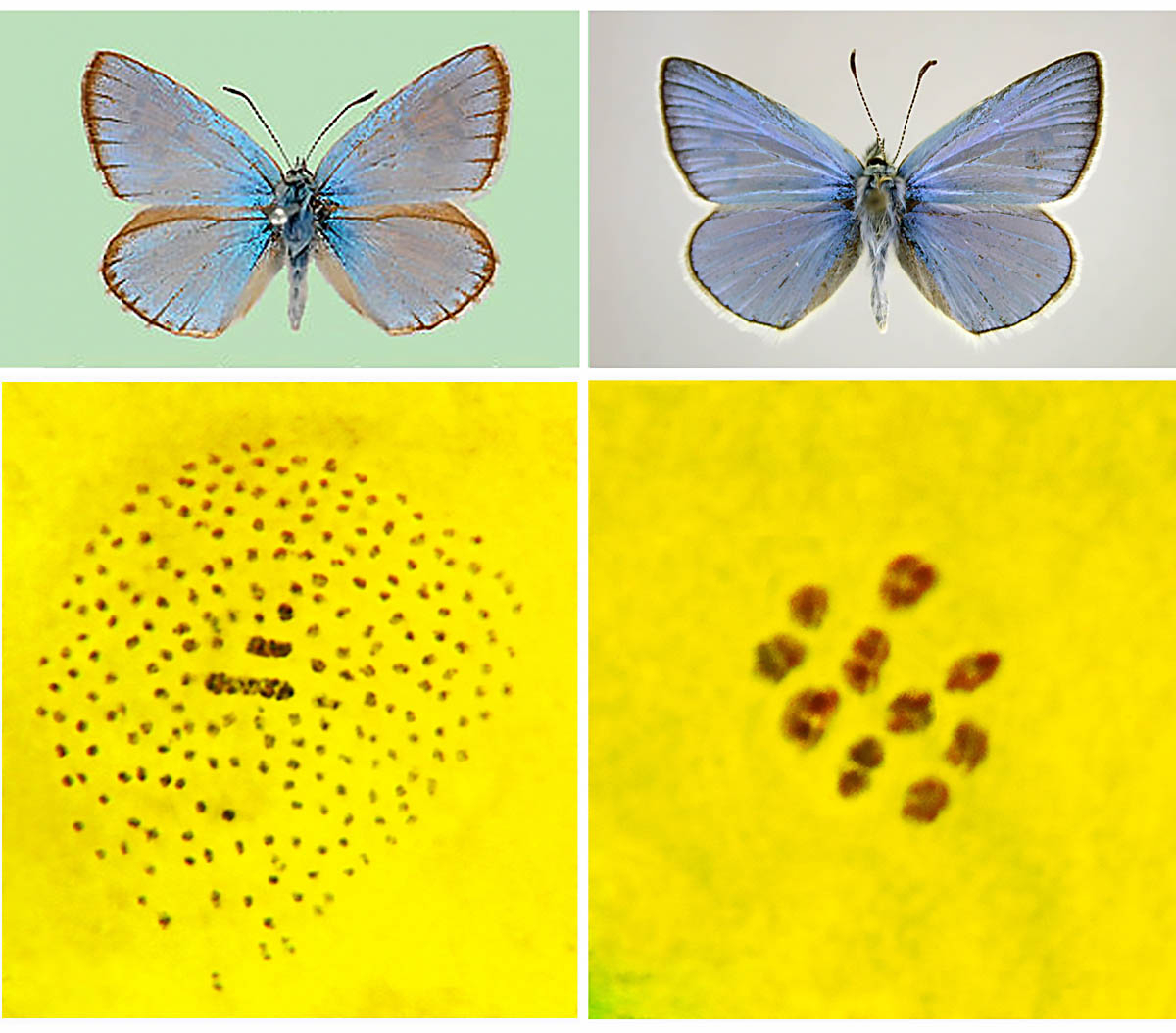Butterflies helped SPbU understand chromosomal evolution

The scientists from SPbU and Zoological Institute, RAS, have discovered regularities in the explosive chromosomal evolution – with the help of the pygmy blue butterflies. The explosive chromosomal evolution is a speciation process which results in formation of new similar plants and animals. The research findings are published in Scientific Reports from the publishers of Nature Publishing Group.
Chromosomal rearrangements — a change in structure and number of the chromosomes — are at the forefront of research in medicine. Such rearrangements have the potential to cause cancer and non-oncological diseases: Down's syndrome, Edwards' syndrome, Turner syndrome and others. Biology is another research area that focuses on the chromosomal rearrangements as they lead to formation of new biological species and consequently generate biological diversity. Still, the chromosomal rearrangements have been little, if any, studied yet.
SPbU’s Prof and entomologist Vladimir Lukhtanov and intern of the Zollogical Institute, RAS, SPbU’s graduate Alisa Vershinina delved into the explosive chromosomal evolution, a phenomenon which regularly appears in various plants and animals and leads to formation of new similar species which nevertheless have strikingly different numbers of chromosomes.
“To understand what the chromosomal evolution is you can take two incredibly similar species of butterflies: Polyommatus atlanticus and Polyommatus caeruleus that are practically similar in appearance, — said Vladimir Lukhtanov. — Polyommatus atlanticus has 226 tiny chromosomes, which are similar to specks of dust, while Polyommatus caeruleus has 10 polytene chromosomes. Still, the genetic material of the both species is practically the same. We have chosen the pygmy blue butterflies from the genus Polyommatus as an object of our research as this group has a highest chromosome diversity in the animal kingdom”.
The explosive chromosomal evolution was considered to be caused by numerous simultaneous changes in chromosomes. The new research has revealed that the situation is different.
“The chromosomal rearrangements which lead to dramatic changes in the structure of the chromosomes are more likely to accumulate, slowly but surely, rather than appear all of a sudden, — said Vladimir Lukhtanov. — So, in the explosive chromosomal evolution, the changes in the karyotype (the complete set of chromosomes) don’t occur quickly and suddenly, rather they appear according to the Darwin’s principle of gradual evolution, although this “gradualness”, from the geological point of view, is quite sudden”.
The popular believes that the chromosomal rearrangements have negative impact on our body are quite exaggerated, and explosive changes in the karyotype don’t depend on specific exotic mechanisms, apart from those which are explained by the evolution such as genetic drift and natural selection, the research says.

